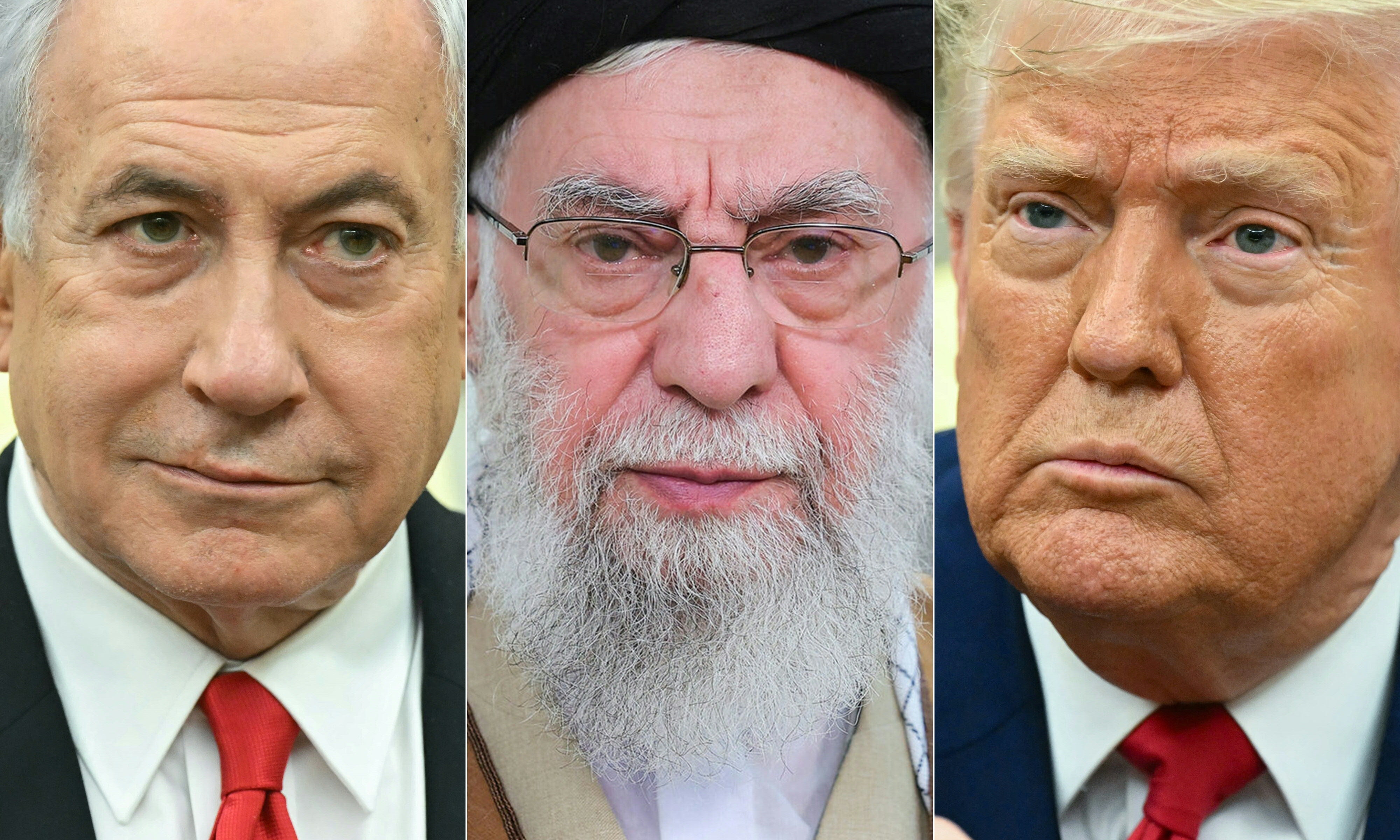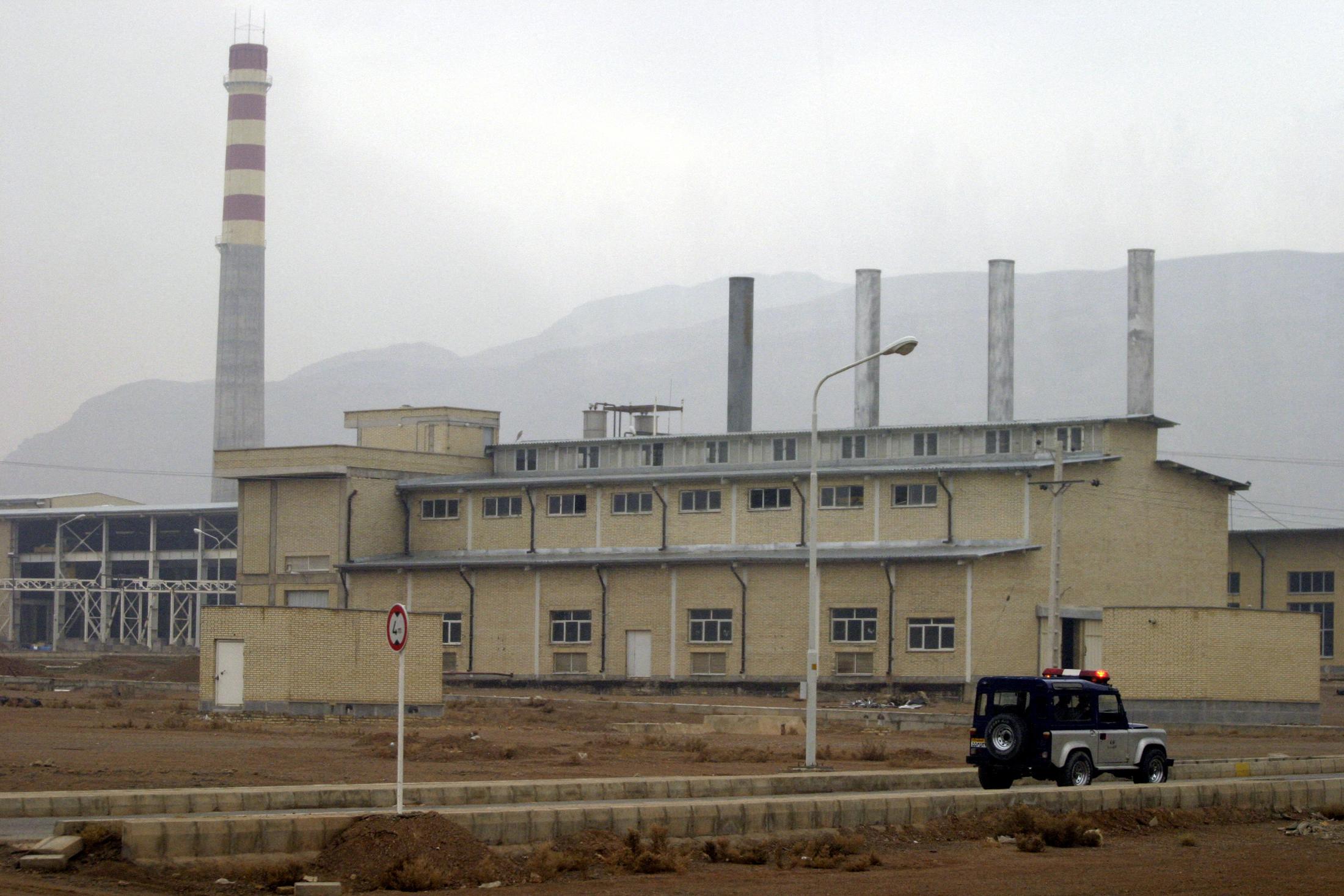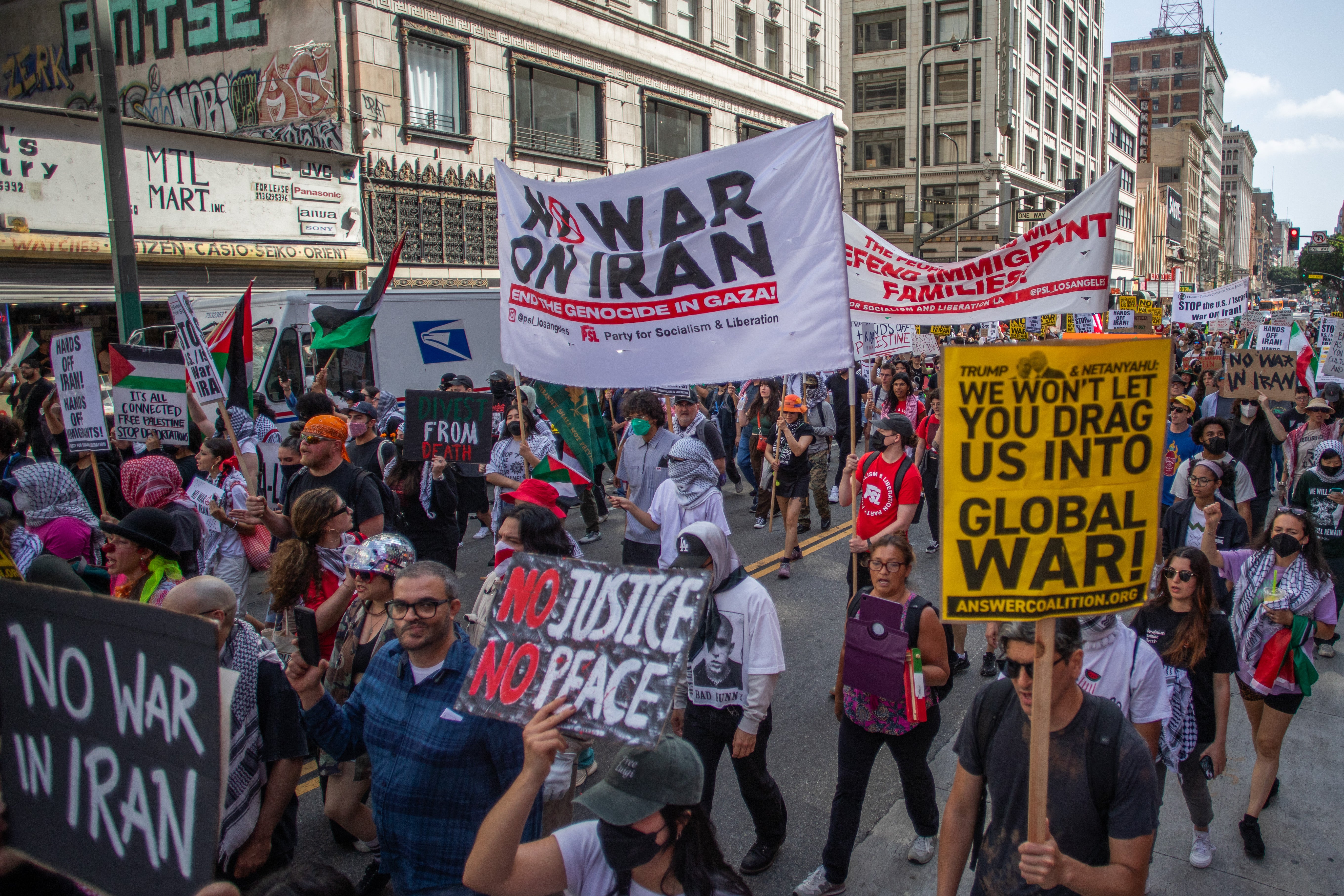President Donald Trump has claimed to have “completely, totally obliterated” Iran’s nuclear program in a series of missile strikes and bombings, marking explicit U.S. intervention into Israel’s war that risks a wider international crisis.
The true extent of the damage is unclear. Retaliatory strikes are expected, as are efforts to revive already-fractured negotiations and diplomatic efforts to lower temperatures.
But the United States is now embroiled in a war between two well-armed nations that could spill out far beyond their borders with untold casualties, experts have warned.
“Remember, there are many targets left,” Trump said in a brief address to the nation on June 21, roughly two hours after announcing a “very successful” series of strikes on nuclear facilities at Fordow, Natanz and Esfahan. “If peace does not come quickly, we will go after those other targets with precision, speed and skill. Most of them can be taken out in a matter of minutes.”
The world is watching to see what will happen, as experts and analysts consider how current conditions, history and a volatile political environment could inform what’s next.

A ‘dangerous escalation’
Trump had campaigned on a promise to end all wars, including Israel’s war in Gaza and Russia’s invasion of Ukraine, yet the president has so far failed to negotiate an end to either.
Israel sought American military support for its campaign against Iran after receiving virtual permission for its devastating war in Gaza in the wake of the October 7, 2023 Hamas attacks — “undermining Trump’s claim to be a peacemaker and his assertion that wars would never have started under his leadership,” according to Brookings Institution senior fellow Sharan Grewal at the Center for Middle East Policy.
He now risks exploding a wider crisis across the Middle East that could endanger U.S. installations abroad and embolden Iran’s allies to retaliate, following a legacy of U.S. intervention and destabilization in the Middle East dovetailing with U.S. support for Israel’s ongoing devastation in Gaza and in occupied territories.
United Nations Secretary General Antonio Guterres said late Saturday that he was “gravely alarmed” by Trump’s decision to bomb Iran, calling it “a dangerous escalation” and “a direct threat to international peace and security.”
“There is a growing risk that this conflict could rapidly get out of control — with catastrophic consequences for civilians, the region, and the world,” he said.
Iran could also retaliate by blocking the strategically important Strait of Hormuz or attacking the energy infrastructure of the Arab Gulf — dramatically driving up global oil prices. Within hours after Saturday’s attacks, roughly 50 oil tankers were seen scrambling to leave the Strait of Hormuz.

Iran-backed Houthis have warned that Trump “must bear the consequences,” Houthi political bureau member Hizam al-Assad posted on X.
The Houthi-controlled Yemeni Armed Forces also said the group was prepared to target U.S. Navy warships in the Red Sea “in the event that the American enemy launches an aggression in support” of Israel. Houthi rebels had previously attacked ships linked to Israel’s war in Gaza, and the United States retaliated with a series of airstrikes in Yemen earlier this year.
Hardening Iran’s resolve — or doing enough damage to force negotiations?
Saturday’s attack marks an “unprecedented event that may prove to be transformational for Iran, the Middle East, U.S. foreign policy, global non-proliferation, and potentially even the global order,” according to Karim Sadjadpour, an Iranian-American policy analyst at the Carnegie Endowment for International Peace.”
“Its impact will be measured for decades to come,” he wrote. “It could entrench the regime — or hasten its demise. It could prevent a nuclear Iran — or accelerate one. “
Iranian officials have stressed for years that its nuclear programs are for civilian and peaceful purposes only, but Israel has claimed that Iran is developing nuclear weapons, a claim central to the long and now accelerating conflict between the two nations.
Following Saturday’s bombings, Iran’s atomic agency vowed “never” to stop its nuclear program, according to Iranian media.
The Atomic Energy Organization of Iran said the three targeted nuclear sites came under “savage assault,” seen as “blatant violation of international law, particularly the Treaty on the Non-Proliferation of Nuclear Weapons.” The agency also accused the U.N.’s nuclear watchdog of “complicity” in the effort as it urged the international community to condemn the strikes and “never allow the progress of this national industry … to be halted.”
Aerial bombardment alone would not be enough to conclusively stop any nuclear ambitions because “neither Israel nor the U.S. can kill all the nuclear scientists,” former U.S. ambassador Ryan Crocker told Politico.
Targeted strikes that significantly damage operations could convince Iran to negotiate, according to former U.S. special envoy Dennis Ross.
But a wider assault — fueled by demands from Israeli officials and Iran hawks in the United States — could be seen by Iran as seeing that “they have little to lose and their best bet is to show they can make us pay a heavy price,” he told Politico.
When Israel struck nuclear programs in Iraq in 1981 and Syria in 2007, “the long-term results were diametrically different,” according to Mara Karlin, former assistant secretary of defense for strategy, plans, and capabilities under Joe Biden. “Tehran could conceivably choose either path,” she said. “And, as long as the uranium enrichment complex at Fordow remains largely intact, it does not need to decide.”
Blowback in Washington — and across America
Trump’s attacks risk deepening a growing divide between his allies and anti-interventionist Republicans now tenuously aligned with a wider anti-war movement and the majority of Americans who do not want the United States involved with Israel’s campaign at all.

Several members of Congress have questioned whether the president’s actions are even legal, amounting to an unconstitutional attempt to escape congressional authorization. At least two congressional Republicans — Rep. Warren Davidson and Thomas Massie — joined Democrats to immediately condemn the bombings as unconstitutional.
“The only entity that can take this country to war is the U.S. Congress,” Sen. Bernie Sanders said in remarks in Oklahoma as the crowd learned about the bombings in real time. “The president does not have the right.”
“The President’s disastrous decision to bomb Iran without authorization is a grave violation of the Constitution and Congressional War Powers,” said Democratic Rep. Alexandria Ocasio-Cortez. “He has impulsively risked launching a war that may ensnare us for generations.”
The New York congresswoman said the attack is “clearly grounds for impeachment.”
Top Democrats on congressional intelligence committees were also not briefed in advance of the attacks.
“The American public is overwhelmingly opposed to the U.S. waging war on Iran,” said Democratic Senator Tim Kaine, who has urged Congress to pass legislation that would require Trump to go to Congress before attacking Iran.
He noted that Israeli officials said its bombs have already set Iran’s nuclear capability back by two to three years. “So what made Trump recklessly decide to rush and bomb today?” he said. “Horrible judgment. I will push for all Senators to vote on whether they are for this third idiotic Middle East war.”
While Trump touts what he claims are unequivocal military successes, he has also spent his first few months in office developing plans to crush dissent domestically. The deployment of the National Guard and Marines to Los Angeles to respond to protests against his anti-immigration agenda could be seen as a “dress rehearsal” for far more expansive emergency powers to impose federal control of America’s cities, according to The Atlantic’s David Frum.
More demonstrations against further military action in Iran are expected, adding to a steady rhythm of protests and unrest against the Trump administration that exploded across American streets in recent weeks.


